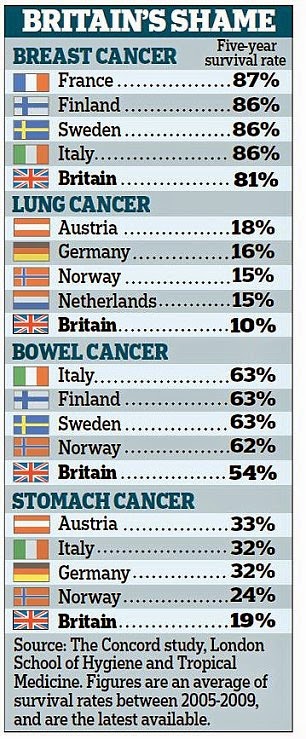How spotting cancer early TRIPLES chance of survival: 80% of patients with eight common forms survive for ten years if disease is spotted in initial stages
- Cancer Research UK have discovered how vital it is to find cancer early
- Findings revealed those found with initial symptoms were likely to live on
- However, patients in which the disease has spread will have lesser chance
- Britain currently lags behind most Western countries in terms of cancer survival rates
Cancer patients are three times more likely to survive if the illness is diagnosed early, figures reveal.
The news underlines how crucial it is that doctors and patients pick up on symptoms before tumours spread.
Analysis by Cancer Research UK found 80 per cent of patients with one of eight common cancers survive for at least ten years if the disease is detected in its early stages.
But this falls to just 25 per cent for patients diagnosed in the later stages, when tumours have spread to the bones, brain, lungs or other organs. Read more: http://www.dailymail.co.uk/news/article-3191637/How-spotting-cancer-early-TRIPLES-chance-survival-80-patients-eight-common-forms-survive-ten-years-disease-spotted-initial-stages.html









